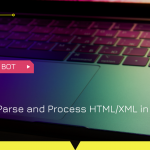In today’s digital age, security is a top priority for any website or web application. SQL injection is one of the most common and dangerous attacks that web developers face. In this blog post, we will discuss how to prevent SQL injection in PHP and why it is important.
What is SQL Injection?
SQL injection is a type of attack that exploits vulnerabilities in SQL code to gain unauthorized access to a database or steal sensitive data. Attackers use SQL injection to execute malicious code, delete or modify data, or gain administrative access to a system.
How does SQL Injection Work?
SQL injection works by inserting malicious code into an application’s SQL statement, usually through user input such as form fields or URL parameters. The malicious code is then executed by the database, which can result in data theft, data corruption, or even system compromise.
How to Prevent SQL Injection in PHP
Use Prepared Statements
Prepared statements are one of the most effective ways to prevent SQL injection in PHP. Prepared statements use placeholders instead of directly embedding user input in SQL statements, which helps to prevent SQL injection attacks. Here is an example of using prepared statements:
$stmt = $pdo->prepare('SELECT * FROM users WHERE username = :username');
$stmt->execute(['username' => $username]);Sanitize User Input
Sanitizing user input can also help to prevent SQL injection attacks. Sanitizing means removing any characters that are not valid or expected, which can help to prevent the injection of malicious code into SQL statements. Here is an example of sanitizing user input:
$username = filter_input(INPUT_POST, 'username', FILTER_SANITIZE_STRING);Use Parameterized Queries
Parameterized queries are another effective way to prevent SQL injection in PHP. Parameterized queries use placeholders instead of directly embedding user input in SQL statements, which helps to prevent SQL injection attacks. Here is an example of using parameterized queries:
$stmt = $mysqli->prepare('SELECT * FROM users WHERE username = ?');
$stmt->bind_param('s', $username);
$stmt->execute();Limit User Privileges
Limiting user privileges is another way to prevent SQL injection attacks. By limiting the privileges of users, you can prevent them from executing malicious code or accessing sensitive data.
Keep Software Up-to-Date
Keeping software up-to-date is also important to prevent SQL injection attacks. New vulnerabilities and exploits are discovered all the time, so it’s important to keep your software up-to-date with the latest security patches and updates.
Conclusion
SQL injection is a serious threat to web applications and databases, but it can be prevented by using prepared statements, sanitizing user input, using parameterized queries, limiting user privileges, and keeping software up-to-date. By following these best practices, you can help to ensure the security of your web application and protect against SQL injection attacks.


